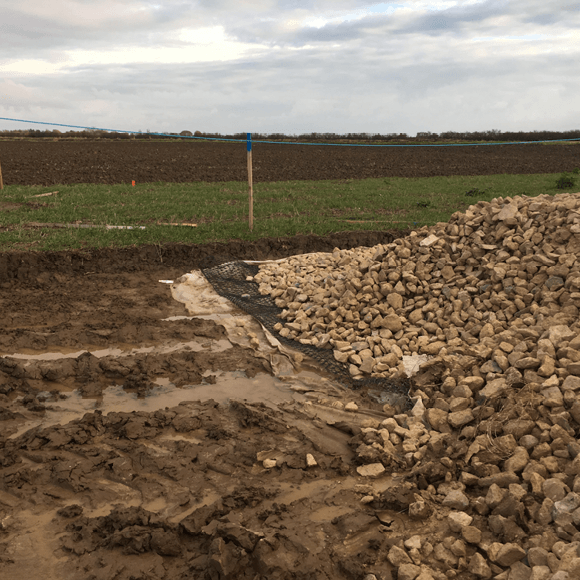
Triton Knoll
Subgrade stabilisation, using Tensar geogrid, delivered cost, time and carbon savings for 40km of haul road built over weak ground to support installation of the cable transferring electricity from the windfarm to an inland converter station.
Benefits
- 20-25% reduction in road pavement thickness
- 25% savings in CO2e by using less imported aggregate
- £200,000 savings in total construction cost estimated
The requirement for construction to proceed during periods of saturated ground conditions together with the need to reinstate greenfield agricultural land to former use ruled out chemical stabilisation. Murphy Group planned to use biaxial reinforcement geogrid to support construction plant loading including cable drum deliveries and drilling rigs. Local sources of aggregates were of poor mechanical strength (Los Angeles Coefficient >60) to deal with heavy duty plant loading which resulted in a need to import aggregate over considerable distances. The key driver from Murphy Group was to limit stone delivery vehicle movements, avoiding disruption to the local area whilst increasing construction output.
Tensar informed Murphy Group that a proposal including a biaxial reinforcement geogrid for the indicated road thickness would provide insufficient support to the anticipated trafficking loads, therefore an alternative approach utlising its stabilisation geogrids was proposed.



